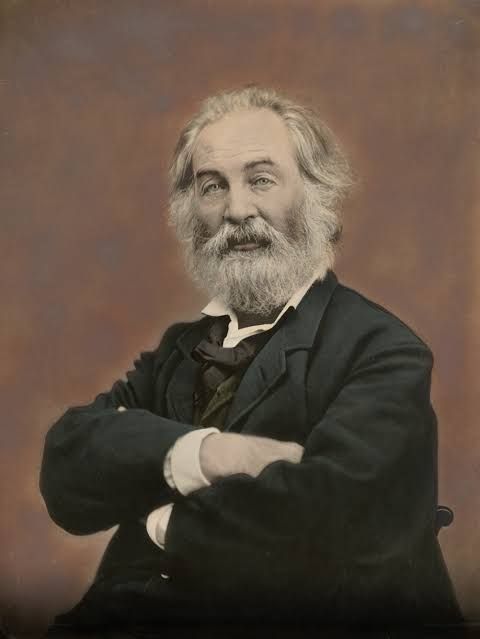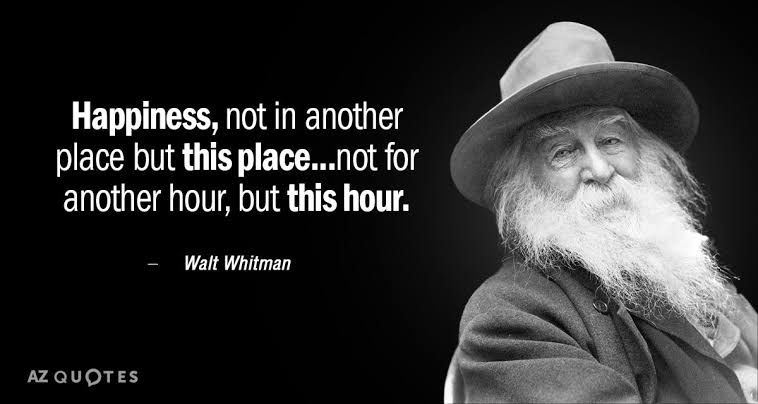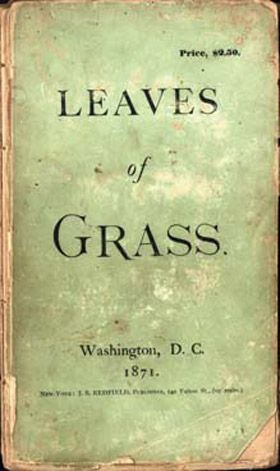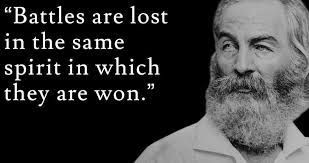Walt Whitman
Jun 30, 2019 • 36 views
Walt Whitman, a famous American poet was born on May 31, 1819, in West Hills, on Long Island, New York. He was the second son of Walter Whitman who was a house-builder, and Louisa Van Velsor. Whitman attended the Brooklyn public schools. Whitman began to learn the printer’s trade and fell in love with the written word at the age of twelve. He read voraciously and became acquainted with the works of Homer, Dante, Shakespeare, and the Bible.

Until a devastating fire in the printing district demolished the industry Whitman worked as a printer in New York City. At the age of seventeen, he began his career as a teacher in the one-room schoolhouses of Long Island in 1836. He continued this until 1841, when he turned to journalism as a full-time career.
He edited a number of Brooklyn and New York papers, including the Brooklyn Daily Eagle. He also founded a weekly newspaper, The Long-Islander. Whitman’s attitudes about race have been described as “unstable and inconsistent.” He did not always side with the abolitionists, yet he celebrated human dignity.

He continued to develop the unique style of poetry in Brooklyn. Whitman took out the first edition of Leaves of Grass, which consisted of twelve untitled poems and a preface in 1855. After publishing the volume himself he sent a copy to Emerson. Whitman released a second edition of the book in 1856, containing thirty-two poems and a letter from Emerson praising the first edition, and a long letter by Whitman in response. Through his book 'Leaves of Grass' he celebrated democracy, nature, love, and friendship. This work praises the body as well as the soul, and found beauty and reassurance even in death.Throughout his life, Whitman continued to refine the volume, publishing several more editions of the book.

At the outbreak of the Civil War Whitman worked as a freelance journalist and visited the hospitals of New York City. In December 1862 he travelled to Washington, D. C. to take care of his brother, who got wounded in the war.
After seeing the suffering of the wounded people in Washington, Whitman decided to stay and work in the hospitals and thus he ended up staying in the city for eleven years. He took a job as a clerk for the Bureau of Indian Affairs. But he lost his job when the Secretary of the Interior, James Harlan, discovered that Whitman was the author of Leaves of Grass, which he found offensive. After this Harlan went on to work in the attorney general's office.
Whitman suffered a stroke that left him partially paralyzed in 1876. Few months later he travelled to Camden, to visit his dying mother at his brother’s house. He ended up staying with his brother until the publication of Leaves of Grass of 1882, which brought him enough money to buy a home in Camden.
In that house, Whitman spent his declining years working on additions and revisions to his deathbed edition of Leaves of Grass. On March 26, 1892, after his death Whitman was buried in a tomb he designed and had built.
Along with Emily Dickinson, Whitman is regarded as one of America’s most significant poets who influenced many other poets of the 19th century, including Ezra Pound, William Carlos Williams, Allen Ginsberg, Simon Ortiz, C.K. Williams, and Martín Espada, etc.

